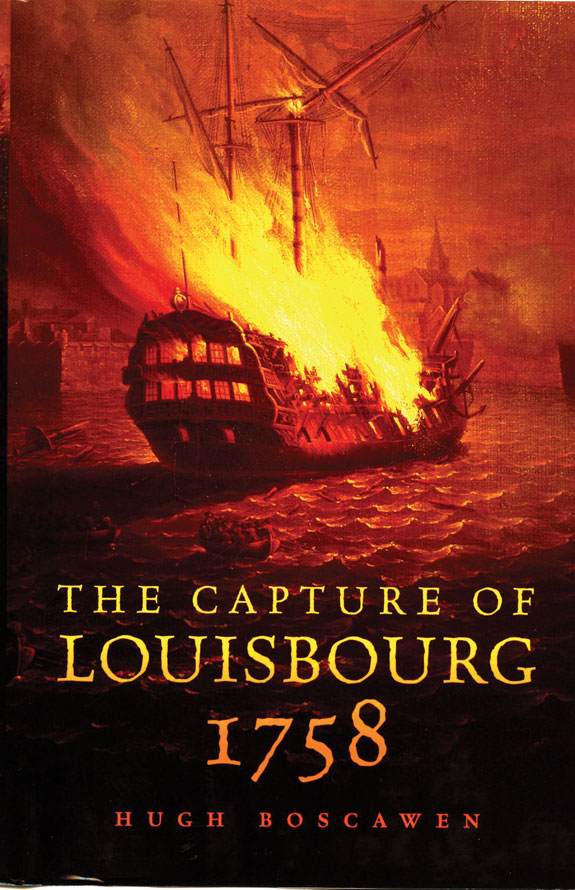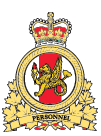 This information has been archived for reference or research purposes.
This information has been archived for reference or research purposes.
Archived Content
Information identified as archived on the Web is for reference, research or recordkeeping purposes. It has not been altered or updated after the date of archiving. Web pages that are archived on the Web are not subject to the Government of Canada Web Standards. As per the Communications Policy of the Government of Canada, you can request alternate formats on the "Contact Us" page.
Valour (Vol. 11, No. 4)
Book Reviews

THE CAPTURE OF LOUISBOURG, 1758
by Hugh Boscawen
Norman, Oklahoma: University of Oklahoma Press, 2011 466 pages, $39.95 Cloth.
Reviewed by Emily Spencer
For more information on accessing this file, please visit our help page.
For enthusiasts of the colonial era, specifically the contest for North America, this book is a ‘must have.’It is very well written, and clearly demonstrates in-depth research.Moreover, in addition to the exquisite detail contained throughout the book, its style is engaging and fast-flowing. The human drama and the challenges of launching such an ambitious military operation are clearly captured within the pages of The Capture of Louisbourg.
The book itself is an excellent examination of both the British and French naval and army commanders, and the challenges they faced in the struggle for Louisbourg. It begins by providing some context to the period and to the theatre of operations. Notably, however, the synopsis of British foreign policy at the front end may deter some readers, as to fully follow it, one requires a good understanding of the period, particularly events as they transpired in North America.
Boscawen then describes the actions of the antagonists, from the French struggle to continue to supply the Fortress of Louisbourg, to the English efforts to block these attempts. Very little literature has actually focused upon this obscure component of the struggle for North America, and, as such, The Capture of Louisbourg adds important detail to an understanding of the larger struggle.
The remainder of the book focuses upon training the invasion force and the actual campaign. It utilizes journals, letters, and official reports in order to fully capture the essence of the military experience. The story ends with a chapter on the aftermath, namely the tension and struggle to decide what follow-on actions should be undertaken with regard to continuing operations against the French with what remained of the campaigning season, as well as the effect of how the news was received in Europe.
As noted, the book is well written, and it belies an understanding of military affairs.This is not surprising since the author, Hugh Boscawen, is a retired colonel who served in the Coldstream Guards. He is also a direct descendant of Admiral Edward Boscawen, who commanded the Royal Navy fleet at Louisbourg. Adding to the author’s understanding of army operations is the fact that he is also a skilled yachtsman and a specialist in 18th Century naval and military history.
Importantly, in addition to Boscawen’s personal connection to the material, the research is commendable. Boscawen utilizes a vast array of primary sources, and provides detailed endnotes, which are of great value. Moreover, there is a very detailed map, located on the inside covers, both front and back, which makes access very convenient, should the reader wish to situate action in the text on the ground.Additionally, there are six maps at the front of the book that put the action within the context of the larger war in North America, as well as a series of maps that provide greater detail of the siege itself. There are also 24 black-and-white images which provide some visual support in terms of the personalities involved and of Louisbourg itself.Unfortunately, however, none of the images adequately capture the battle, or even the essence of the fortress, and are thus somewhat disappointing.
Aside from that minor criticism, the volume offers much to the historian or active enthusiast of the period and acts as a detailed reference and resource book. It has detailed endnotes, an excellent bibliography, and a comprehensive index. Moreover, it includes four detailed appendices. The first provides a very helpful guide to those who wish to visit the battlefield today. The next two appendices provide the British and French orders of battle, and the fourth outlines the ships and regiments that participated in the attack, and their current status. Finally, the book includes an outstanding glossary that explains a number of technical terms utilized during the period.
In all, The Capture of Louisbourg is an outstanding book. It captures, in a detailed and exciting manner, a key military campaign in Canadian and world history. Moreover, it acts as a detailed resource manual for that campaign, which will prove timeless for those studying the period or event. In sum, historians, history buffs, and military enthusiasts will enjoy and benefit from reading this book.
Dr. Emily J. Spencer is a Research Associate with the Canadian Special Operations Forces Battle Laboratory.She is also an Adjunct Assistant Professor at the Royal Military College of Canada. Her research focuses upon the importance of cultural knowledge to success in the contemporary operating environment, as well as the role the media plays in shaping understandings of world events.






